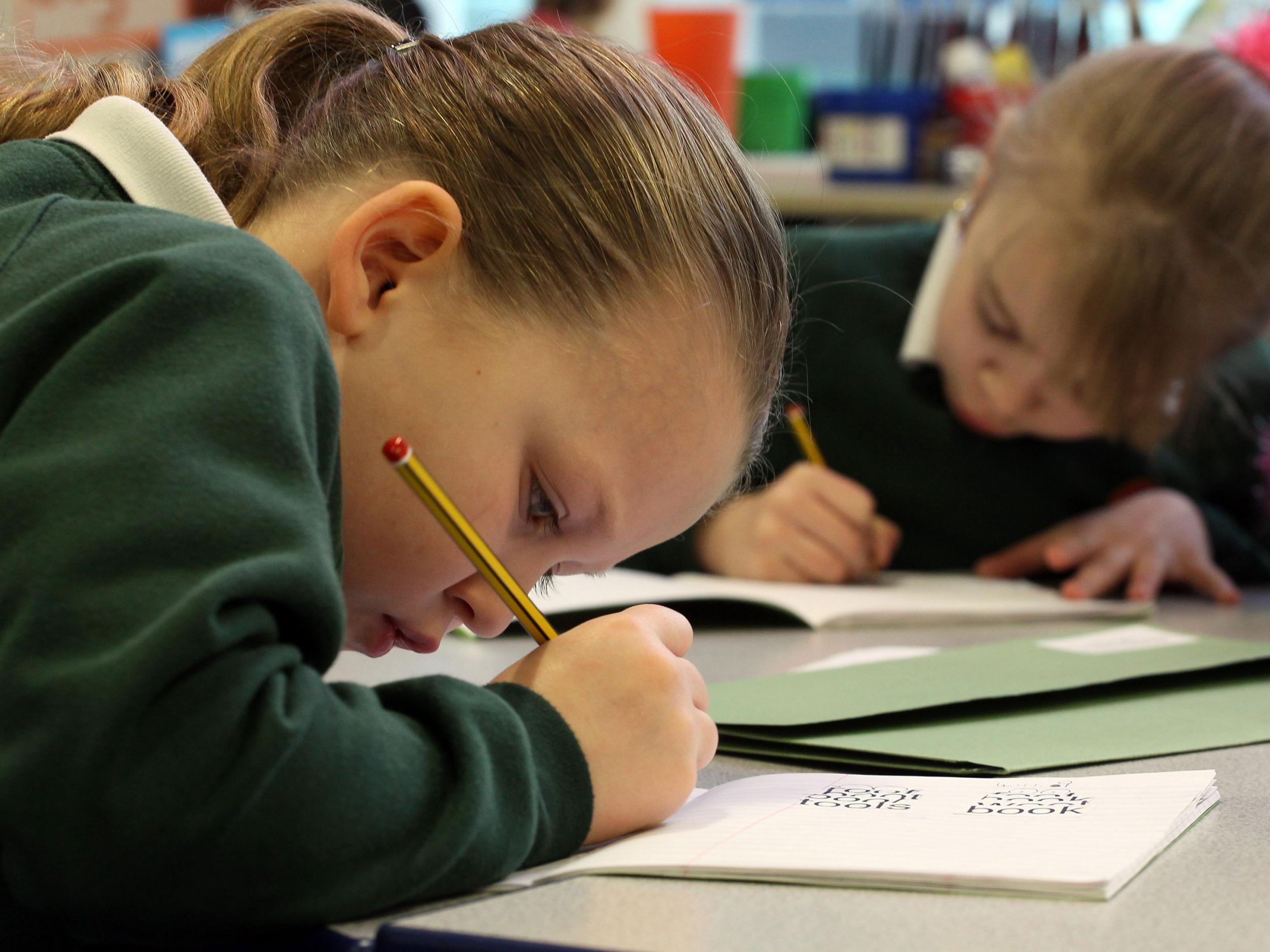Four out of 10 primary school pupils fail to pass SATs exams
But pass rates were better than in 2016

Your support helps us to tell the story
From reproductive rights to climate change to Big Tech, The Independent is on the ground when the story is developing. Whether it's investigating the financials of Elon Musk's pro-Trump PAC or producing our latest documentary, 'The A Word', which shines a light on the American women fighting for reproductive rights, we know how important it is to parse out the facts from the messaging.
At such a critical moment in US history, we need reporters on the ground. Your donation allows us to keep sending journalists to speak to both sides of the story.
The Independent is trusted by Americans across the entire political spectrum. And unlike many other quality news outlets, we choose not to lock Americans out of our reporting and analysis with paywalls. We believe quality journalism should be available to everyone, paid for by those who can afford it.
Your support makes all the difference.Almost 40 per cent of primary school pupils in England failed to meet the Government's expected standard in reading, writing and maths, results from national SATs tests show.
Figures released by the Department for Education showed 61 per cent of pupils reached the expected standard in 2017, up from 53 per cent in 2016.
This means 39 per cent failed to reach the expected standard across all three subjects of reading, writing and maths this year.
More than half a million 11-year-olds across England took national curriculum tests, known as SATs, in May, with the results used in annual school league tables to assess a school's performance.
The figures show an improvement on last year in all areas with 71 per cent of pupils meeting the expected standard in reading, compared with 66 per cent last year, while 75 per cent of pupils met the expected standard in maths, compared with 70 per cent last year.
The expected standard in grammar, punctuation and spelling was met by 77 per cent of pupils, compared with 73 per cent last year, and 76 per cent of pupils met the expected standard in writing, compared with 74 per cent last year.
To reach the expected standard in all of reading, writing and maths, a pupil must achieve a scaled score of 100 or more in reading and mathematics tests and a teacher assessment outcome of "reaching the expected standard" or "working at a greater depth" in writing.
School standards minister Nick Gibb said: "Today's results show sustained progress in reading, writing and maths and are a testament to the hard work of teachers and pupils across England.
"Thanks to their commitment and our new knowledge-rich curriculum, thousands more children will arrive at secondary school having mastered the fundamentals of reading, writing and maths, giving them the best start in life."
The average scaled score for reading in 2017 was 104, up from 103 in 2016.
The average scaled score for grammar, punctuation and spelling was 106 in 2017, up from 104 in 2016.
The average scaled score for maths was 104 in 2017, up from 103 in 2016.
SATs tests have long proved controversial, with teaching unions arguing that they put too much pressure on children, and the results are not a reliable measure of how schools are performing.
Last year, pupils sat tougher papers based on a new national curriculum, and 53 per cent of pupils reached the new expected standard in reading, writing and maths.
The year before, under the old system, 80 per cent achieved Level 4 – the old level expected of the age group – or above in these core subjects. Ministers were at pains to stress that the results were not comparable.
But union leaders branded last year's results a "shambles".
Headteachers have warned that primary schools must not be judged on their SATs tests results alone.
The National Association of Head Teachers (NAHT) said schools and parents know that the results must be taken with a "pinch of salt".
Russell Hobby, general secretary of NAHT, said: "Comparisons with last year are inevitable but they are also unwise, as last year's results were unexpectedly low and pupils were being assessed at a time when the curriculum and assessment methods had changed significantly.
Press Association
Join our commenting forum
Join thought-provoking conversations, follow other Independent readers and see their replies
Comments